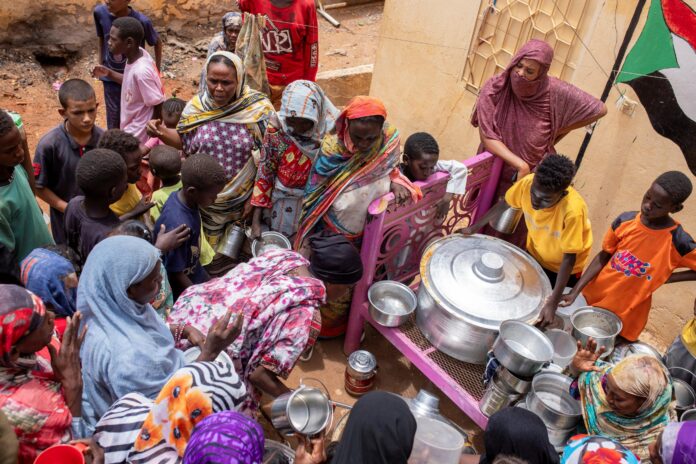
Written by Lisa Murimi
A worsening humanitarian crisis is unfolding in the besieged city of al-Fashir, North Darfur, where relentless shelling, food blockades, and a growing cholera outbreak are compounding the suffering of hundreds of thousands trapped by Sudan’s civil war.
The city, the last major army-controlled stronghold in western Sudan, has become the focal point of brutal fighting between the Sudanese Armed Forces and the paramilitary Rapid Support Forces (RSF), now in the third year of their conflict. The RSF has intensified its assault in recent weeks, bombarding the city with artillery and drone strikes.
“Shelling starts in the morning and continues into the night,” one resident told Reuters. “There’s no electricity, bakeries are shut, and the cemeteries are growing every day.”
With humanitarian access blocked and aid convoys frequently attacked, residents face severe food shortages. Many have resorted to eating animal feed like ambaz, made from peanut shells. Even that is becoming scarce.
“There is hunger everywhere. Even I haven’t eaten today,” said a doctor working inside the city, speaking anonymously for safety. “Children and adults alike are malnourished.”
Al-Fashir’s fall would give the RSF near-total control over Darfur, raising fears of Sudan’s potential fragmentation. Displaced residents, some previously uprooted by earlier violence, are caught in the crossfire, and attempts to flee come with new dangers.
At least 14 people fleeing the city were killed in a village attack, rights group Emergency Lawyers reported. Survivors described being robbed, attacked, and witnessing kidnappings along the road to Tawila, a town now sheltering over 500,000 displaced people.
Tawila itself is overwhelmed, with minimal shelter, limited food, and an expanding cholera outbreak. Médecins Sans Frontières has treated over 2,500 cases since mid-June, with 52 reported deaths. A lack of clean water, sanitation, and shelter has left many sleeping in the open amid rains.
“We wait for the rain to stop so our children can sleep,” said Huda Ali, a mother of four sheltering under a straw roof.
Despite a United Nations call for a humanitarian pause, the RSF has rejected ceasefire appeals. Fighting has also spread into Sudan’s Kordofan region, further complicating efforts to establish safe zones or restart peace talks.


















